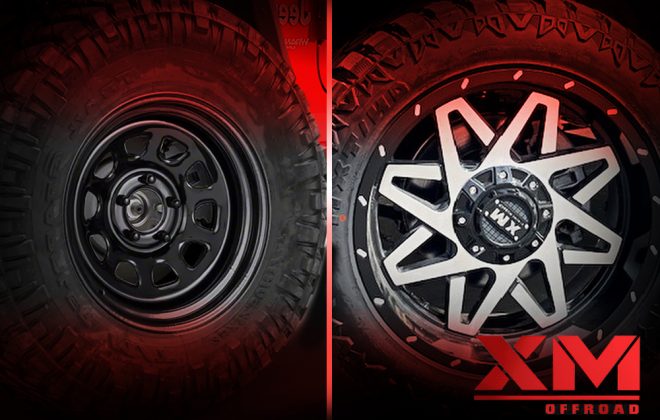When we talk about differences, it’s important to have a visual picture of what the differences might be. To answer this question, we will show you what an aluminum wheel is and how it differs from one of the steel wheels commonly used in commercial vehicles. Both steel and aluminum wheels are excellent materials that allow us to use vehicles practically anywhere while confidently getting there on time and actively.
We’ve got some information about both steel and aluminum wheels to suit your needs.
Steel Wheels
The average weight of steel wheels is about 78lbs, which is 30 times heavier than an aluminum wheel. If your fleet is not operating in a weight-sensitive application, such as bulk holing, your fleet need not worry too much about the weight of the steel wheels. There is plenty of market for lightweight steel wheels, including the option of a cost-effective weight loss, etc. Some of these options can save you an average of 10-12 times more than conventional steel wheels.
Steel wheels are poorly represented when it comes to high maintenance requirements. Even so, owning one is still beyond the reach of the average person. Steel wheels need to be refurbished as part of a regular fleet truck maintenance schedule. According to TMC RP 240A, steel wheels have to be cleaned frequently. Like cleaning a stove or a shower, it may seem tiring, but there are benefits to getting used to it. Many dealers use MILCURE system re-coating wheels that stick surprisingly well and keep the wheels on top – thus extending the life of your investment!
Many newer models of commercial vehicles in North America that have been developed can have standard Prestel wheels. Because steel wheels usually cost less than aluminum, they are heavier in weight.
Aluminum Wheels
The draw for fleets to make the switch to aluminum wheels in weight reductions of as much as 30 pounds. In accordance with 4×4 wheels manufacturer, The average weight of an aluminum wheel is 47 pounds, which is significantly less than that of steel, which weighs anywhere between 55 and 85 pounds. For example, if a truck runs 10 tires, you can potentially save 300 pounds. Because such a large amount of weight can add in other areas like cargo or vehicle body and chassis, it allows for flexibility and choice for your operation. If your fleet operates in a job where total weight at the wheel positions must not exceed legal limits – like a bulk haul fleet – this type of decision is beneficial because it allows one to stay within legal and safe limits while providing other options than to just adding all that money into additional equipment.
An increasing number of fleets are turning their attention towards aluminum off-road wheels because they see that it’s important to find a way to emphasize the vehicle’s appearance. Corrosion is an issue when it comes to certain types of aluminum, and so with each passing year that your wheels experience rust or corrosion, it can deteriorate their appearance and possibly make them unusable from excessive wear and tear. Although people switch to alloys for their aesthetic value, other things need maintenance too, for example checking for the contact between the rims and tires. Just like maintaining transportation infrastructure in general, if you want your wheels to last as long as possible then you need to keep up with keeping them intact.
Cleaning them takes only a matter of minutes but the result lasts longer than you imagine!
The main drawback of aluminum wheels, in the process of building a car, is their cost. Compared to steel, aluminum wheels can cost more. However, (especially those carrying heavy luggage), the difference in weight between cargo versus wheels weight results in cost savings. This will replace by the choice of any type of aluminum. Helps to recover the price premium.
Are There Other Steel and Aluminum Wheel Advantages?
When you decide to invest in lightweight aluminum wheels for your truck, no longer will you have to deal with lug nuts that are overly difficult to remove and install every time. Aluminum wheels made from forged or extruded aluminum utilize a flow forming process that creates a non-directionally solid aluminum wheel eliminating stress points. Or the option of cryogenic stress relieving (CRYO) Quench and Tempering creates even more tension-reducing any residual stresses in the aluminum which not only makes these wheels easier to work with but also stronger than conventional casted or billet aluminum.
When choosing aluminum wheels vs. steel, you can see potential fuel savings. It will be reducing the total weight of your vehicle. Since truck fuel consumption is directly related to the weight and make-up of each vehicle, lightweight solutions. These come in handy during everyday driving and especially when on long road trips or in heavy cargo situations. For fleets, this could mean a lot when it comes to cutting down costs involved with owning and multiple vehicles!
Read Also: Top 9 Advantages of High-End Off-Road Wheels
There are a few invaluable advantages of steel wheels over aluminum. For example, because steel is much harder than aluminum, it will be thinner and lighter. In turn, sometimes this might make them easier to clear brakes as well as steering components! This is an advantage in terms of installing smaller diameter wheels lighter or bigger brakes. Additionally, steel wheels may eventually rust, regardless of their paint, chrome coating and Red Milled Wheels.
Final Thoughts
When deciding on wheels for your fleet, you have to consider the environment in which your vehicle is driving. If it’s a rugged terrain where sturdiness is a must then steel wheels. It may be the best option whereas aluminum wheels would be ideal for smooth terrains. Our graphic above will give you a comparison to help with making your decision so that you can make decision!
